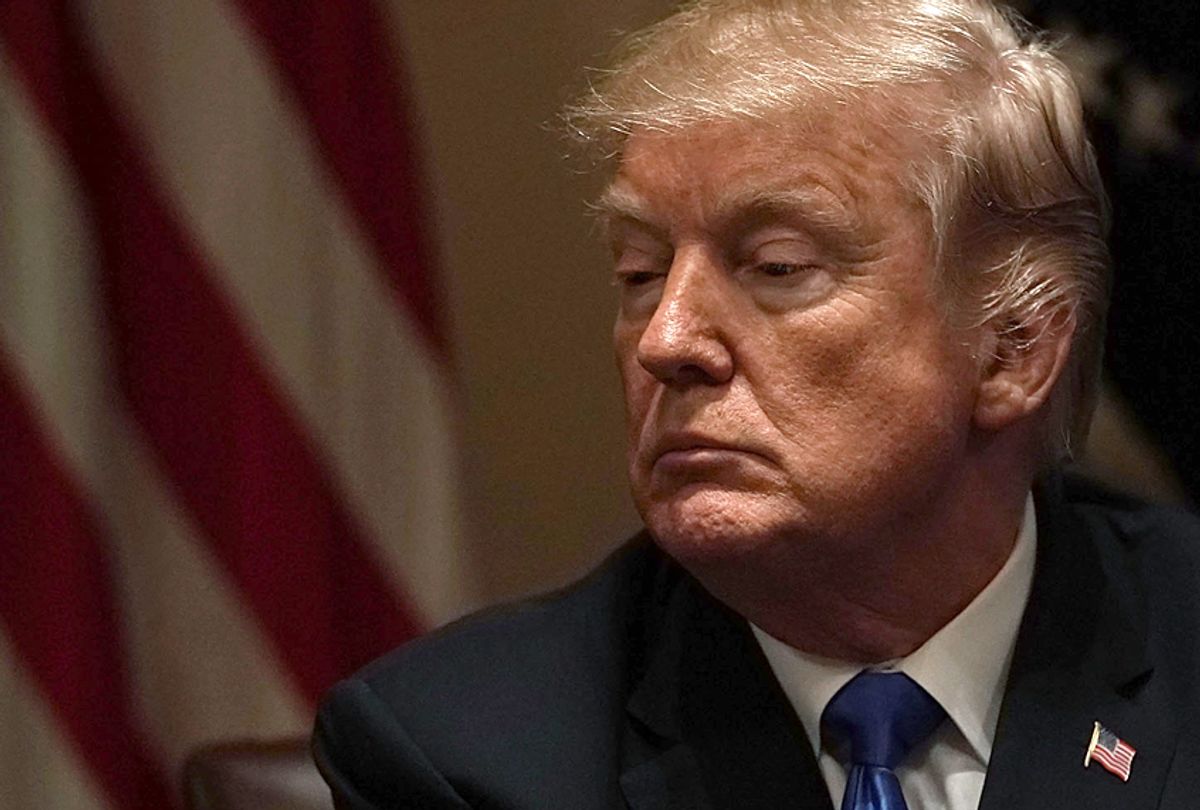After the mass shooting in Parkland, Florida, last month, President Donald Trump made several public statements in support of stricter gun laws. But a policy framework finally released on Sunday evening by the White House tells a different story, proposing no significant changes in national firearms regulations.
During a Feb. 28 public discussion with members of Congress, Trump suggested he was open to stricter regulations aimed at keeping guns out of the hands of people with mental illness or histories of violence. “A lot of times by the time you go to court, it takes so long to go to court to get the due process procedures, I like taking the guns early,” the president said.
During the session, and also on Twitter, Trump also expressed support for the idea of increasing the minimum age at which people can purchase long guns, a position the National Rifle Association opposes. Federal law currently prohibits people under 21 from buying handguns from licensed dealers.
“Now, this is not a popular thing to say, in terms of the NRA. But I’m saying it anyway,” Trump said in the same meeting with lawmakers. “You can buy a handgun — you can’t buy one; you have to wait until you’re 21. But you can buy the kind of weapon used in the school shooting at 18. I think it’s something you have to think about.”
Administration officials also indicated at the time that this was actually Trump’s position, as opposed to their frequent practice of walking back the president’s off-the-cuff public remarks.
“The president has been clear that he does support raising the age to 21 for certain firearms,” White House Deputy Press Secretary Raj Shah said during an interview with ABC, just hours before the administration’s policy framework was released. During a background briefing with reporters, White House officials did not explain why the age restriction was dropped, according to Bloomberg News. The discussion over age-based restrictions seems to have been assigned to a new Federal Commission on School Safety to be headed by Education Secretary Betsy DeVos.
The DeVos commission is also supposed to examine the idea that violent content in video games is somehow responsible for school shootings, a position that is not supported by scientific evidence, according to a statement released last year by a division of the American Psychological Association that studies media and technology use.
“Journalists and policy makers do their constituencies a disservice in cases where they link acts of real-world violence with the perpetrators’ exposure to violent video games or other violent media,” the report read. “There’s little scientific evidence to support the connection, and it may distract us from addressing those issues that we know contribute to real-world violence.”
In a Monday morning Twitter post, the president defended his new position on age restrictions — which is not to take a position at all.
Despite the president’s claim, polls show overwhelming public support for restricting people under age 21 from buying certain firearms. A SurveyMonkey poll released last week showed more than 70 percent support, across all age groups, for a federal law banning people under 21 from purchasing semi-automatic weapons. In a February survey conducted for Politico, 81 percent of respondents said they favored making all gun purchases before the age of 21 illegal. Even Rasmussen Reports, a conservative-oriented polling firm beloved by Trump, found earlier this month that 67 percent of respondents supported restricting gun purchases to those 21 and older.
In fact, the only new legal restriction the administration apparently now supports is an administrative rule that would ban “bump stocks,” accessories that can enable semi-automatic weapons to shoot at similar speeds to fully automatic weapons. (Such a device was used by the shooter in the Las Vegas massacre last October.) Gun safety groups have criticized this approach as being unlikely to survive an inevitable court challenge, as opposed to legislation or formal regulation. Notably, the NRA also favors the approach backed by Trump and Attorney General Jeff Sessions.
“The NRA knows that only Congress could subject bump stocks to some ‘additional regulation,’” Brad Buckles, the former director of the federal Bureau of Alcohol, Tobacco and Firearms wrote last year.
The administration’s policy wish-list does include one idea that Trump has touted repeatedly: allowing firearms-trained teachers to carry weapons inside educational institutions. In two Feb. 22 tweets, the president argued this idea would allow mass shootings inside of schools to be stopped “instantly.”
Senate Minority Leader Chuck Schumer, D-N.Y., blasted Trump's apparent walk-back on serious gun reforms. “The White House has taken tiny baby steps designed not to upset the NRA, when the gun violence epidemic in this country demands that giant steps be taken,” he said. “Democrats in the Senate will push to go further including passing universal background checks, actual federal legislation on protection orders, and a debate on banning assault weapons.”
Trump’s behavior on guns seems to have followed what is now a familiar pattern on controversial political issues, where the president makes public statements that appear to embrace moderate liberal positions but in the end only push for policies favored by the right. On immigration, Trump has frequently claimed that he favors granting citizenship to the 1.8 million people eligible for the federal deportation relief policy, but only as part of a larger package deal that many immigration advocates consider unreasonable.
As a presidential candidate, Trump repeatedly praised various government-run health care systems while claiming his unspecified proposals would “take care of everybody.” When it came time to push actual policies through the House and Senate, however, he allowed conservative Republicans to craft legislative proposals that would have slashed federal health care spending by hundreds of billions of dollars and could have left more than 20 million people without health insurance.



Shares